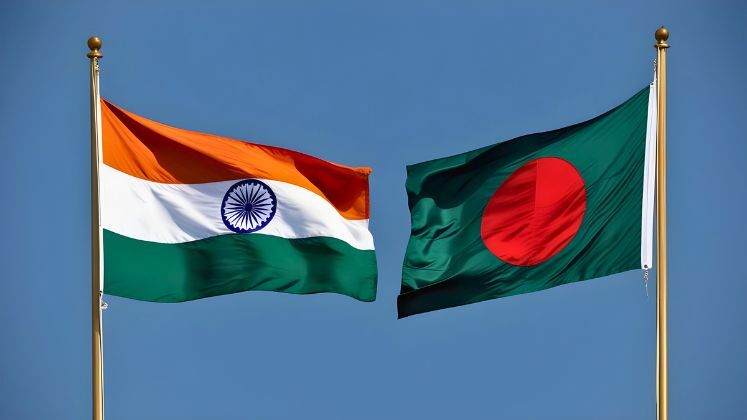
India and Bangladesh are facing increased trade tensions as a result of recent retaliatory actions, the BBC reported. Businesses in the area have been greatly disrupted by the conflict, particularly Bangladesh’s crucial apparel sector.
Citing the need to safeguard its indigenous textile industry from less expensive Indian substitutes, Bangladesh recently banned ground imports of Indian cotton yarn. With “congestion” as the official excuse, India responded by suspending a vital transhipment facility that enabled Bangladesh to export clothing to international markets through Indian ports and airports.
The diplomatic relationship between the two nations has deteriorated since August, when former Bangladeshi Prime Minister Sheikh Hasina was ousted amid widespread protests. Now residing in India, Hasina faces criminal allegations from Bangladesh’s interim government, led by Nobel laureate Muhammad Yunus, who seeks her extradition—a request India has yet to address.
India’s charges of persecution against Bangladesh’s Hindu minority, which claim the interim government permits systematic attacks, have significantly increased tensions. These accusations are denied by Dhaka.
Concern is already being raised by the trade interruptions. In order to quickly export goods to Western markets, Bangladesh’s sizable garment industry—which is second only to China—heavily depends on the land-air corridor through India. Production costs have increased as a result of the route’s suspension, which handled more than $1 billion in exports last year and shortened delivery times from two months to a week.
According to some analysts, India’s actions are a response to remarks made by Yunus during a recent visit to China, where he praised Chinese participation in a crucial river project close to the delicate Siliguri Corridor and emphasised Bangladesh’s strategic significance in linking India’s landlocked northeast to the ocean. These comments were deemed offensive and tactically dangerous by Indian officials.
Indian textile industries are pushing for curbs on Bangladeshi garment imports, and the diplomatic stalemate has also resulted in fewer Indian visas being granted to Bangladeshis. On the other hand, Dhaka is reviewing the transit contracts that the current government gave to India.
After a long break, Bangladesh has started to resume diplomatic talks with Pakistan, further complicating the regional dynamics. The developing friendship between Dhaka and Islamabad amid rising Indo-Pakistani tensions is being keenly monitored, even if India has not formally voiced any concerns.
Experts caution that continuing tensions might jeopardise years of regional collaboration by seriously harming trade, connectivity, and people-to-people interactions in the area.






